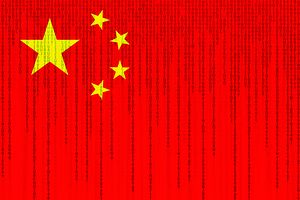Officials in the Trump administration are considering imposing further restrictions on major Chinese companies, notably the digital payment platforms of Ant Group and Tencent Holdings Ltd., according to a report by Bloomberg. These firms would join a growing list of Chinese technology entities that have faced economic pressure, sanctions, and bans in the United States including Huawei, ByteDance’s TikTok, and Tencent’s WeChat.
Although TikTok has secured a deal for the U.S. operations to be purchased by Oracle and Walmart and a U.S. federal court temporarily halted the U.S. WeChat ban, the floating of new potential measures suggests that the economic tension between Washington and Beijing is unlikely to abate any time soon. While diplomats and observers alike await the results of the United States’ 2020 presidential election, questions surrounding the nexus between economic openness and national security will continue no matter who occupies the top leadership position. Still, the current signal being sent from Washington is that national security concerns outweigh the financial gain from having Chinese tech companies operating on U.S. shores.
The reported motivation to target Ant Group’s and Tencent’s digital payment platforms echoes the rationale of the executive orders used against WeChat, a multi-feature messaging app, and TikTok, a video sharing app. The administration cites concern over the data privacy of the users of Chinese-developed and owned digital applications and services. For example, the president’s order on “addressing the threat posed by WeChat” stated that these applications automatically collect personal user information:
This data collection threatens to allow the Chinese Communist Party access to Americans’ personal and proprietary information. In addition, the application captures the personal and proprietary information of Chinese nationals visiting the United States, thereby allowing the Chinese Communist Party a mechanism for keeping tabs on Chinese citizens who may be enjoying the benefits of a free society for the first time in their lives.”
For context, WeChat has more than a billion registered users worldwide, including an estimated 19 million in the United States. Though on hold, a ban on WeChat, even in the United States, will likely be more than disruptive for the Chinese diaspora. To a certain extent, it represents “a ban on the world’s largest non-Western digital media company,” writes Layne Vandenberg for the Diplomat.
Taking action against these tech firms appears to be aligned with the Trump administration’s broader Clean Network program developed to address threats to data privacy, security, human rights, and safeguard sensitive information of citizens and companies from malign actors, including the Chinese Communist Party (which is explicitly identified). The program emphasizes “clean carrier, clean apps, clean store, clean cloud, clean cable, clean path.”
The administration is reportedly weighing the potential legal instruments it may use to take action, be it under measures to protect digital supply chains, via presidential directives, as were used in the case of TikTok and WeChat, or placing the firms on the Treasury Department’s specially designated national list, which would prohibit U.S. persons and businesses from dealing with them.
However, unlike WeChat and TikTok, which have a sizable presence in international and U.S. markets, Ant Group’s and Tencent Holdings Ltd.’s payment platforms are predominantly for the domestic Chinese market. The two payment platforms are used primarily by Chinese citizens and require Chinese bank accounts in renminbi. The small share of interactions by the payment platforms in the United States are largely between U.S. merchants and Chinese travelers and businesses.
Ant Group, formerly Ant Financial and Alipay, is an affiliate of Chinese billionaire Jack Ma’s Alibaba. Although Alibaba made a splash in its U.S. expansion in July 2019, Ant Group generates less than 5 percent of its revenue outside of China. Separately though, a number of U.S entities have poured millions in investments into Ant with much anticipation for the potential gains of a dual listed IPO on the Shanghai and Hong Kong stock markets. The company is seeking to raise $35 billion in what could become the world’s largest IPO later this fall; such gains would boost the fintech company’s valuation to $250 million.
For its part, Tencent is an expansive conglomerate, the owner of WeChat and QQ, a heavily used digital payment platform, video game studios (including the United States’ Riot Games and a shareholder in Epic Games), and other internet services. It also serves as an important investor in the Chinese, and more recently Asian, tech start-up sector.
Targeting Ant Group and Tencent, two Chinese tech giants and symbolic success stories, would likely exacerbate already souring U.S.-China relations. The U.S. moves, while still under discussion, could hinder and delay future international expansion of these payment platforms at a time when Chinese leadership has doubled down on becoming an innovation hub not only in Asia, but worldwide, as it faces slowing economic growth.
































